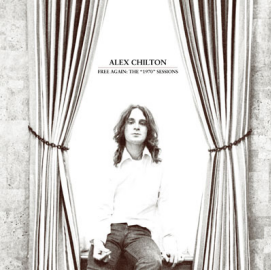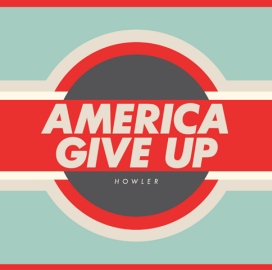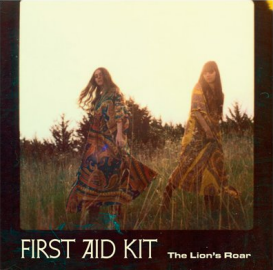Kathleen Edwards
Voyageur
Ten years into a career marked by modest, but consistent album output, Ottawa songstress Kathleen Edwards manages to perfectly capture a kind of quiet desperation in the anthems about heartbreak, cruelty and divorce that populate her latest record, Voyageur. On her fourth LP, handsomely produced by new love interest and falsetto folkie célèbre Justin Vernon (Bon Iver), she effortlessly freewheels her way between No Depression country, rock and roll, and intricate pop concoctions; the combination is infectious. The closest point of comparison might be Lucinda Williams, but unlike her American counterpart, Edwards isn’t afraid to step outside the genre conventions of alt country. She manages to join strong musicianship with an honest examination of personal hurt best exemplified in the excruciatingly bitter, but brilliant first single “Change the Sheets.” The more I think about it, perhaps Morrissey is the best musical reference; there is something irresistibly cathartic about Edwards’ inescapable melancholy.
Alex Chilton
Free Again: The “1970” Sessions
Although Alex Chilton was the lead singer and face of The Box Tops in the late ‘60s, he was never truly their leader. The young teen was handpicked for his soulful voice, and Chilton soon grew unhappy with the limitations on his freedom as an artist. This new compilation of music represents the midpoint between his Box Tops and Big Star days, which sees Chilton transition from the light bluesy and psychedelic sound of The Box Tops, to the undercurrent of British power pop later explored while playing in Big Star. Free Again does not serve as a great introduction to this cult hero’s discography, but rather it helps devoted fans connect the dots between Chilton’s first two projects, as he experiments with his vocal range, lyrics and guitar style. Overall the songs found on Free Again are well crafted, but the real message behind this record is Chilton reclaiming his independence from the corporately run Box Tops, allowing him to explore his talents outside of being just “that singer from the Box Tops.”
Howler
America Give Up
This album is a pleasant surprise: at first Howler seems to have a typical indie-pop sort of sound, but as the album progresses, an old-school grunge punk leaning develops. The guitar distortion, which tends to be a little rougher and more noisy, and the ever-so-slightly gravelly vocals are reminiscent of a ‘90s punk style. This element is just subtle enough to catch the listener’s ear without being distracting: the overall undeniably catchy style keeps one foot firmly in the realm of indie pop rock, and the grunge elements accentuate and complement this style like adding a pinch of salt to a meal. Overall, Howler has created both a homage to the past and an album for the present, allowing for both a hint of nostalgia for styles gone by and something that still modern, popular, and danceable.
First Aid Kit
The Lion’s Roar
First Aid Kit sisters Klara and Johanna Söderberg of Sweden showcase their artistic abilities in their new album The Lion’s Roar. Ironically titled, The Lion’s Roar is perhaps the last image that comes to mind when listening to the soft harmonies performed by the talented duo. The organic vocal styling of the pair is brilliantly accompanied by simple, folk instrumentals making this album the perfect listen after a hard day. On the downside, this album lacks variety between songs, ultimately missing the energy necessary for sustaining entertainment. Despite this flaw, The Lion’s Roar still manages to have me hooked. Two songs stuck out in particular as the most addictive “Emmylou” and “Blue.” The lyrics used in this album express simple narratives in a profound way. I would definitely recommend listening to The Lion’s Roar during one of those draining study sessions; it is bound to put your mind at peace.






